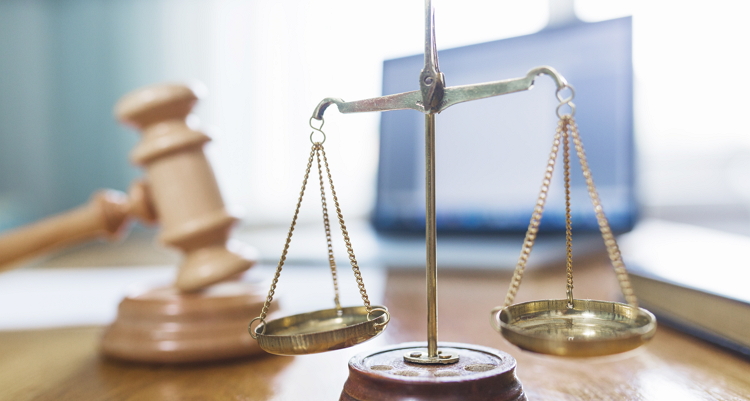Law is one of the oldest and most influential systems in society, shaping how individuals, organisations, and governments interact. It provides order, regulates behaviour, protects rights, and sets the framework for justice. To understand law, it’s important to examine its origins, structure, and applications in daily life.
What is Law?
Law is a structured set of rules created and enforced by governing bodies to regulate behaviour and resolve disputes. It represents society’s shared values and ensures accountability. Without law, conflicts would escalate without resolution, and basic rights could not be guaranteed.
The Purpose of Law
The primary purposes of law can be divided into several key areas:
-
Maintaining order: Preventing chaos by setting clear rules and expectations.
-
Protecting rights: Ensuring individuals’ freedoms and interests are safeguarded.
-
Delivering justice: Providing mechanisms for fair treatment and conflict resolution.
-
Guiding conduct: Establishing acceptable standards of behaviour.
-
Facilitating change: Adapting to evolving social, economic, and technological realities.
The Sources of Law
Statutory Law
These are laws passed by legislative bodies such as Parliament. They provide clear written rules, often covering criminal offences, business regulations, and civil rights.
Common Law
Also known as case law, this system relies on judicial decisions and precedents. Judges interpret legislation and past rulings to apply principles to new cases.
Constitutional Law
Constitutional law sets out the fundamental principles of governance, such as separation of powers, citizens’ rights, and limitations of authority.
International Law
International agreements and treaties regulate relations between states, covering areas such as trade, human rights, and environmental standards.
Branches of Law
Criminal Law
Focuses on offences against society, such as theft, assault, or fraud. The state prosecutes offenders, and punishments may include fines, community service, or imprisonment.
Civil Law
Deals with disputes between individuals or organisations. Examples include property disputes, breach of contract, and negligence claims.
Family Law
Covers matters such as marriage, divorce, custody, and adoption. It aims to protect vulnerable family members and ensure fair arrangements.
Employment Law
Regulates the relationship between employers and employees. Topics include wages, working conditions, discrimination, and dismissal.
Commercial Law
Governs business activities, including contracts, trade, and corporate governance.
Human Rights Law
Protects fundamental freedoms and ensures individuals are treated with dignity and equality.
The Role of Courts
Courts are central to enforcing and interpreting the law. They provide a structured process for resolving disputes and applying justice.
-
Magistrates’ Courts: Handle minor offences and preliminary hearings.
-
Crown Courts: Hear serious criminal cases with judges and juries.
-
Civil Courts: Resolve disputes between individuals or organisations.
-
Supreme Court: The highest authority in interpreting law and setting precedents.
The Legal Profession
Legal professionals play a vital role in ensuring fairness:
-
Solicitors: Provide legal advice, prepare documents, and represent clients in lower courts.
-
Barristers: Specialise in advocacy and represent clients in higher courts.
-
Judges: Impartially apply the law and ensure trials are conducted fairly.
-
Legal Executives: Handle specialised areas of law, often working alongside solicitors.
Law in Everyday Life
Law influences everyday decisions, even if we do not always recognise it:
-
Signing contracts when renting property or buying goods
-
Following road traffic rules to ensure safety
-
Understanding rights at work
-
Protecting personal data under privacy laws
-
Accessing healthcare and social benefits within legal frameworks
Evolution of Law
Law is not static; it evolves with society’s needs. For example:
-
Technology: Cybercrime, online privacy, and digital property laws have developed in response to the internet.
-
Environment: Climate change has led to stronger environmental regulations.
-
Social Change: Shifts in views on equality have influenced laws on marriage, discrimination, and workers’ rights.
Challenges in Law
Despite its importance, the legal system faces challenges:
-
Accessibility: Legal advice and representation can be costly.
-
Complexity: Laws can be difficult for ordinary people to understand.
-
Globalisation: Cross-border issues make enforcement more complicated.
-
Speed of change: Legislation often lags behind technological and social developments.
FAQs About Law
What is the difference between civil and criminal law?
Civil law resolves disputes between private parties, usually seeking compensation or remedies. Criminal law addresses offences against society, where punishment is imposed on offenders.
Do I need a solicitor for every legal issue?
Not always. Minor disputes or straightforward contracts may be managed without one, but legal professionals are essential when rights or freedoms could be significantly affected.
How does international law affect individuals?
International treaties often filter into domestic law, influencing rights such as freedom of movement, trade protections, and environmental standards.
Can laws be changed if they are outdated?
Yes, governments can introduce new legislation or amend existing laws to reflect current needs. Public campaigns and advocacy often play a role in driving such reforms.
What role does precedent play in law?
Precedent ensures consistency by requiring judges to follow principles established in previous rulings, unless there is strong justification to depart from them.
How do human rights laws protect individuals?
They safeguard fundamental freedoms such as freedom of speech, right to privacy, and protection from discrimination, ensuring that governments and organisations remain accountable.









